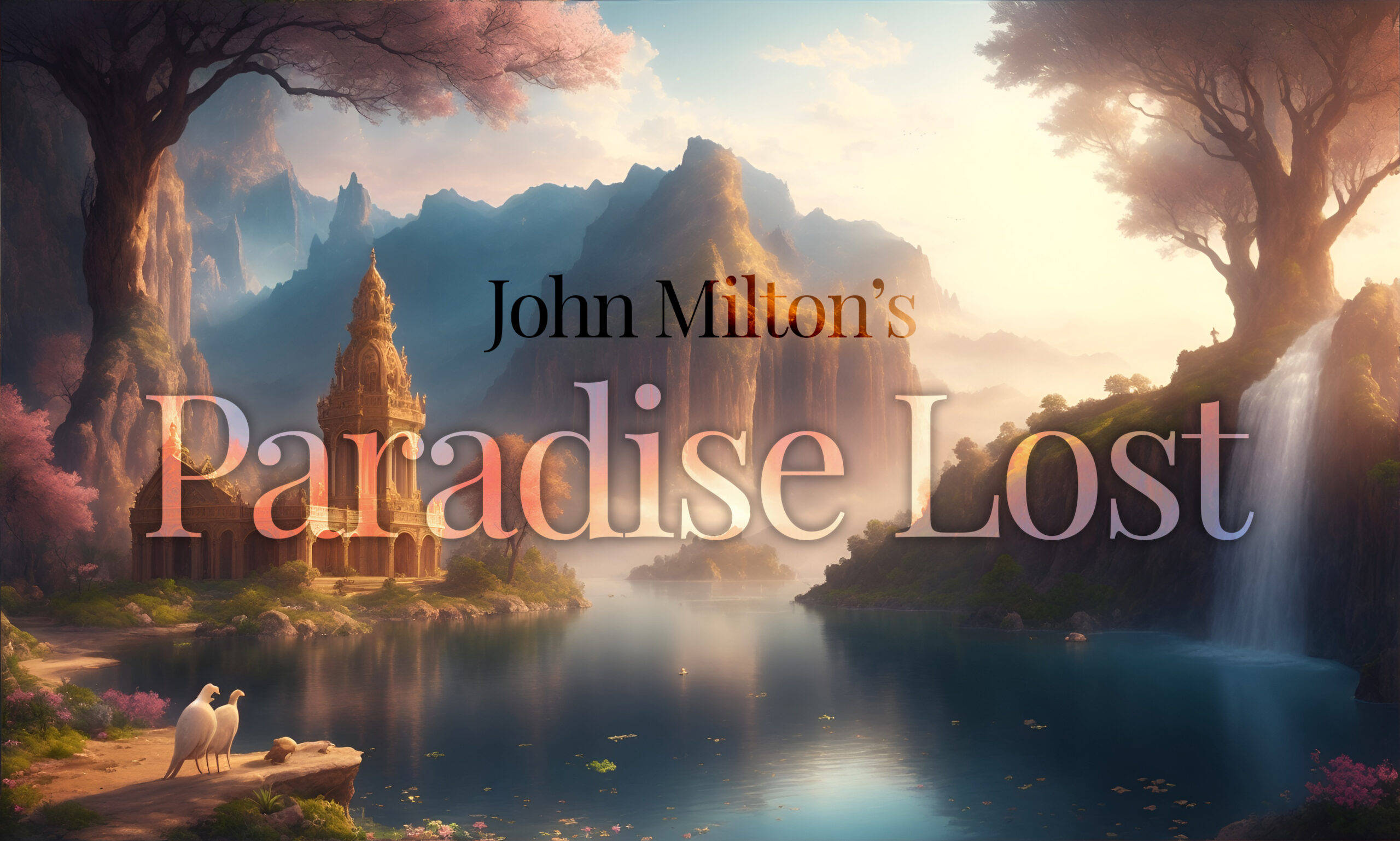Examine the theme of justice in Paradise Lost. How does Milton explore the concepts of divine justice and retribution? Discuss the consequences faced by the characters and the moral framework within the poem.

The Theme of Justice in Paradise Lost
In John Milton‘s epic poem Paradise Lost, the theme of justice plays a significant role in shaping the narrative and exploring the moral framework of the poem. Milton grapples with the complex concepts of divine justice, retribution, and the consequences of human actions. Through the experiences and fates of various characters, he examines the principles of justice and the consequences that arise from both obedience and disobedience to divine authority. This analysis will delve into the theme of justice in Paradise Lost, discussing how Milton explores the concepts of divine justice and retribution, the consequences faced by the characters, and the moral framework established within the poem.
One of the key aspects of justice in Paradise Lost is the idea of individual responsibility and accountability. Milton presents a world in which each character faces the consequences of their own actions, thereby emphasizing the principle of personal agency. The choices made by the characters in the poem have significant repercussions, both for themselves and for the broader narrative. This is evident in the case of Satan, whose rebellion against God and subsequent fall from grace exemplify the consequences of defying divine authority. Satan’s pursuit of power and his refusal to accept his subordinate position result in his banishment to Hell:
“Farewell, happy fields,
Where joy forever dwells! Hail, horrors! Hail,
Infernal world!”
(I.249-251)
This quotation captures Satan’s acknowledgment of the permanent consequences of his actions, as he bids farewell to the joy he once experienced in Heaven and embraces the horrors of Hell. Through Satan’s character, Milton emphasizes the inescapable nature of justice and the inevitable consequences of rebellion.
Furthermore, Milton explores the idea of divine justice through the character of God. God is portrayed as the ultimate arbiter of justice, enacting punishment for transgressions and restoring balance to the universe. His justice is characterized by wisdom and righteousness, ensuring that each character receives their just desserts. In Book III, when God addresses the Son and the angels about the fallen angels’ punishment, he explains:
“Their portion is
With thee, the Son of God; yet not shall be
His reign abolished, though once more reduced
In Heaven, and Earth, and Paradise, which by thee
Shall wither be restored.”
(III.350-354)
Here, God proclaims that the fallen angels will receive their punishment, but their reign will not be entirely abolished. This passage highlights the meticulous sense of justice inherent in God’s plan. While justice is served, there is still a broader purpose and a sense of fairness in the divine plan.
The theme of justice is further explored through the moral framework that underlies the poem. Milton’s Paradise Lost is rooted in a Christian worldview, where notions of sin, virtue, and redemption shape the understanding of justice. The moral principles of the poem are based on the divine law established by God, and the consequences faced by the characters are in line with these moral guidelines. For instance, Adam and Eve’s disobedience and their subsequent expulsion from the Garden of Eden serve as an embodiment of the just consequences of their actions. Milton describes their expulsion:
“But he, who reigns above,
In heavenly wisdom, …Deprived them, though to pity moved,
Of all but naked innocence.”
(X.109-111)
This passage reflects the moral framework underlying the narrative, wherein disobedience is met with loss and suffering. The just consequences of Adam and Eve’s actions reinforce the importance of adherence to divine law and highlight the severity of their transgression.
Additionally, the theme of justice is intricately linked to the concept of retribution in Paradise Lost. Milton portrays retribution as a means of restoring balance and order in the face of evil. The consequences faced by the characters, particularly Satan and the fallen angels, serve as a form of retributive justice. Satan, driven by his pride and desire for power, faces not only physical torment but also the psychological torment of eternal regret and self-loathing. As Satan reflects on his fall, he laments:
“To be no more; sad cure; for who would lose,
Though full of pain, this intellectual being,
Those thoughts that wander through eternity,
To perish rather, swallowed up and lost
In the wide womb of uncreated night…”
(I.45-49)
These lines exemplify the retribution Satan faces for his rebellion. He is forever denied the intellectual pursuits and the freedom he once possessed. The psychological torment he endures serves as a form of retribution that reflects the severity of his transgressions.
Moreover, the theme of justice in Paradise Lost extends beyond individual characters to encompass the cosmic order and the broader implications of divine justice. The poem portrays the ultimate triumph of divine justice over evil, highlighting the overarching moral framework that governs the universe. God’s wisdom and righteousness ensure that justice prevails, even in the face of seemingly insurmountable odds. In Book XII, after the fall of Adam and Eve, Michael reveals to Adam the redemptive plan of God, explaining:
“His sentence is for open war. Of wiles,
More unexpert, I boast not: them let those
Contrive who need, or when they need, not now.
For while they sit contriving, shall the rest,
Millions that stand in arms, and longing wait
The signal to ascend, sit lingering here,
Heaven’s fugitives, and for their dwelling-place
Accept this dark opprobrious den of shame,
The prison of his tyranny who reigns
By our delay?”
(XII.65-74)
Here, Michael assures Adam that divine justice will ultimately be served, as God has a plan to defeat Satan and restore order to the universe. The passage emphasizes the inevitability of justice and the triumph of righteousness over evil.
In conclusion, the theme of justice in Paradise Lost permeates the narrative, exploring the concepts of divine justice and retribution. Milton presents a world in which characters face the consequences of their actions, highlighting the principle of individual responsibility and accountability. The poem’s moral framework, rooted in a Christian worldview, underscores the significance of adhering to divine law and the severe consequences of transgression. The portrayal of justice is closely intertwined with the concept of retribution, serving as a means to restore balance and order in the face of evil. Ultimately, the poem showcases the triumph of divine justice over evil, affirming the inherent righteousness and wisdom of God’s plan. Through the exploration of justice, Milton conveys profound theological implications and offers readers a reflection on the nature of morality and the consequences of human actions.
*****
Read More: Questions and Answers from Paradise Lost by John Milton


